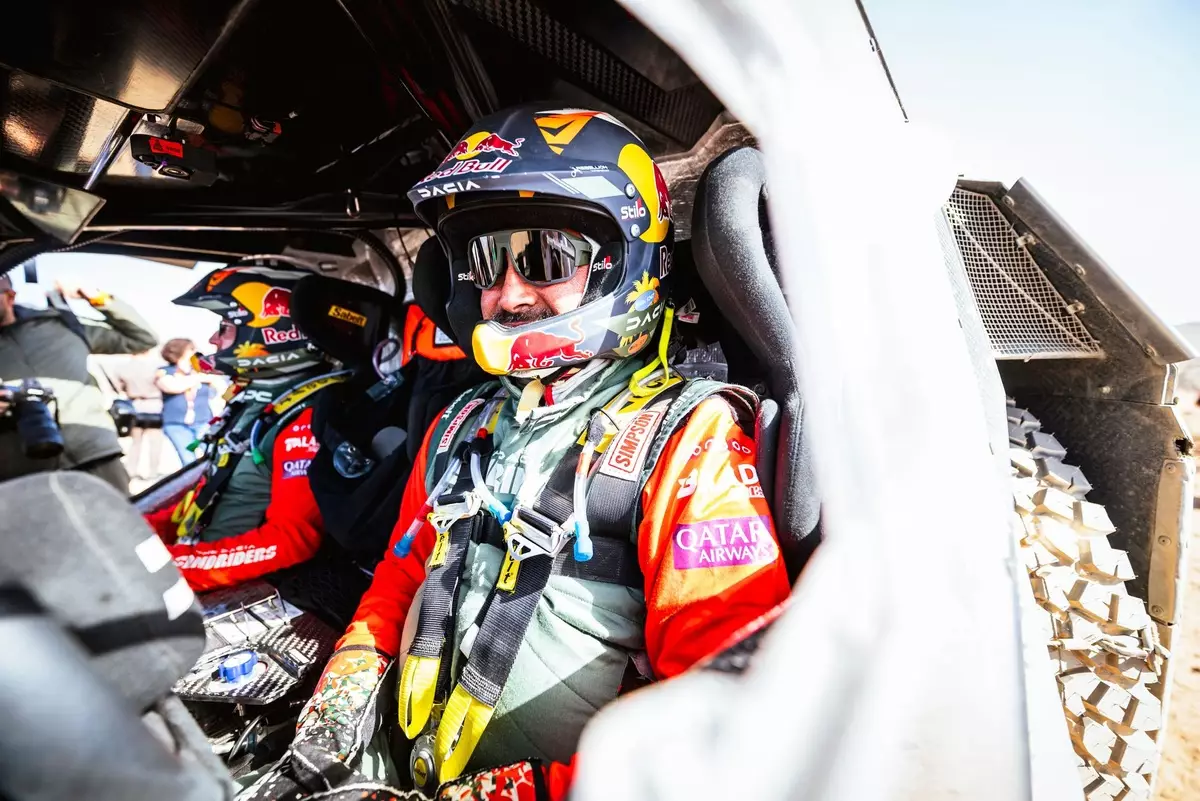The Dakar Rally, an event known for its brutal challenges and fiercely competitive atmosphere, has recently found itself embroiled in controversy. This situation has magnified the tensions between competitors and regulatory bodies, particularly highlighted by Dacia driver Nasser Al-Attiyah’s criticisms of the FIA’s decision to exclude prominent rival Carlos Sainz Sr. from the 2025 Dakar Rally. In a sport that often tests the limits of both machine and driver, the decisions regarding safety protocols can lead to debates that transcend the race itself.
As the FIA cited safety concerns as the primary reason for Sainz Sr.’s exclusion, the question arises: are these concerns warranted or indicative of an overreach? The FIA emphasized its inability to guarantee driver safety in the event of a repeat incident, which should be taken seriously. However, this rationale begs for scrutiny. Al-Attiyah’s rebuttal points to a perceived inconsistency in the enforcement of rules—particularly when he insists that technical issues could have been rectified on-site. This strained relationship between competitors and regulatory bodies can undermine the spirit of competition that defines the Dakar Rally.
Critically, Al-Attiyah’s insistence on the ability to repair roll cages draws attention to the broader discussion of how much autonomy teams should possess to ensure their drivers’ safety while maintaining competitive balance. The FIA’s regulations aimed at ensuring safety during extreme conditions should not come at the expense of the competitive integrity of the event. When pre-race favorites are sidelined due to regulatory rigidity, it raises the stakes for race officials to re-evaluate their position.
Al-Attiyah’s outrage didn’t end with Sainz Sr.’s exclusion. He expressed frustration over a ten-minute penalty he incurred for losing a spare wheel during Stage 5—a penalty that ultimately cost him the stage victory by a mere second. The gravity of fines and sanctions within high-stakes motorsport is part of the game, but questions about their fairness surface when situations become ambiguous. The Qatari driver contends that the circumstances leading to his penalty were beyond his control, highlighting a key issue in motorsport regulations: the need for context in applying penalties.
Al-Attiyah’s intent to pen a letter to FIA president Mohammed ben Sulayem illustrates the urgency felt by competitors to address what they perceive as systemic issues within the sport. He emphasizes the importance of fairness, stating, “If I do it the wrong way and drop the tyres, okay, I get a ten-minute penalty, but we didn’t realize.” This sentiment encapsulates the frustration of those involved in racing, where the line between compliance and punitive measures can often feel blurred.
Despite the current controversies and external pressures, Al-Attiyah remains fixated on the goal of winning. Currently positioned fourth overall and trailing Toyota’s Henk Lategan, he expresses unwavering confidence in his ability to secure another Dakar victory and inch closer to Stephane Peterhansel’s record of eight wins in the car category. His assertion, “I will win. I have no doubt,” serves as a rallying cry not just for his team but for fans who admire the grit and determination inherent in rally racing.
As he prepares for the remaining stages, the dynamic amongst the leading contenders—Al-Attiyah, Lategan, and Yazeed Al-Rajhi—highlights the razor-thin margins in rally competitions. Each stage is fraught with challenges that can easily swing the outcome. The competitive fire remains alive, yet it is interacting with a backdrop of discussions around fairness and safety that will likely linger well beyond the race.
In essence, the ongoing unfolding of the Dakar Rally reflects a fundamental tension that exists at the intersection of safety, competition, and regulatory control. While the FIA’s commitment to protecting drivers is commendable, it must strike a balance that permits fair competition and allows teams the flexibility to adapt. As Al-Attiyah continues to battle through the stages, his journey brings forth vital conversations about not only what it means to race but how the rules that govern such races can, and should, evolve.

